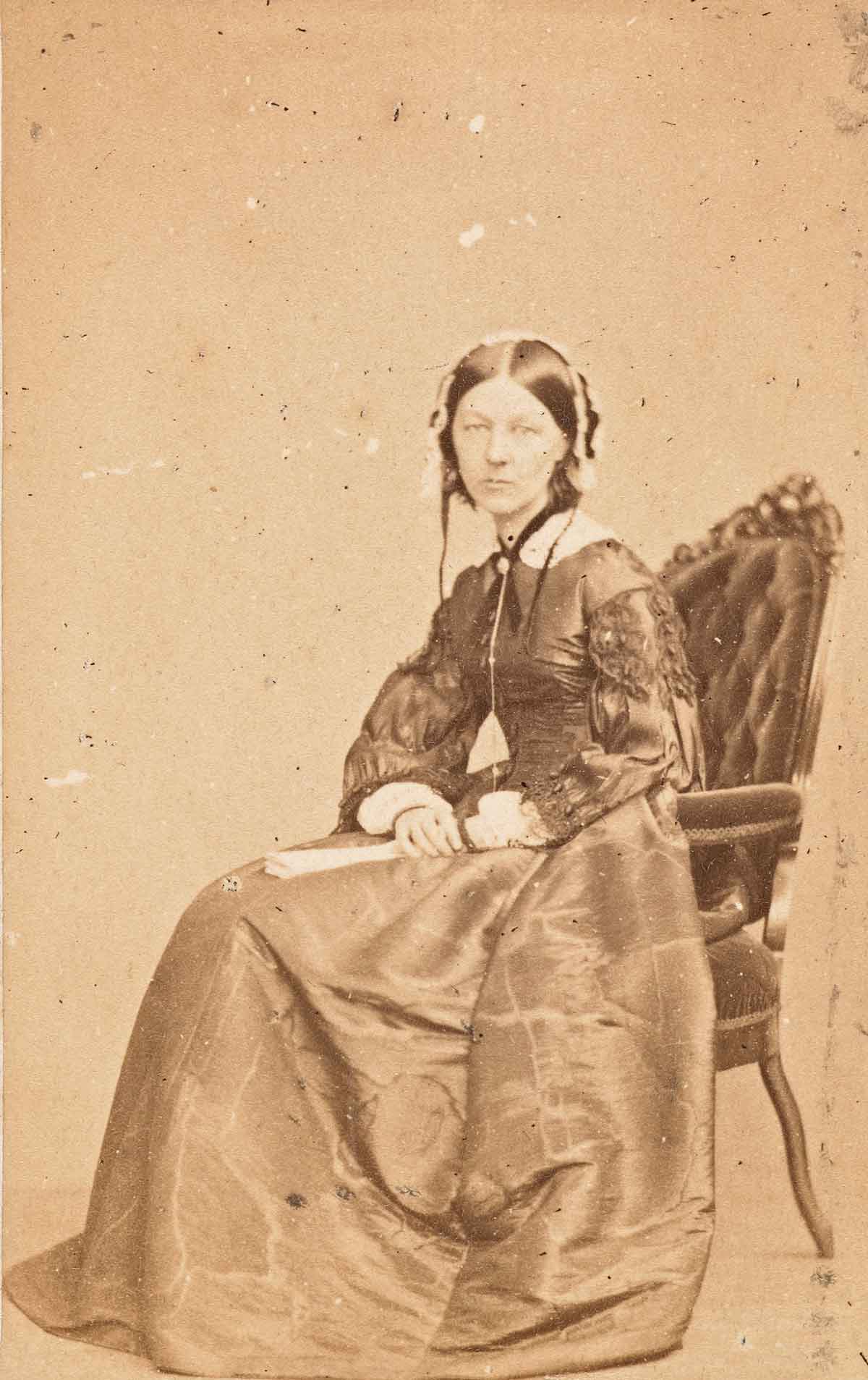Tuesday, 17 November 2020
Experts in health, history and English literature have joined together to mark 200 years since the birth of the world’s most famous nurse, with a new book looking at how her home life influenced her work.
Florence Nightingale at Home is the work of Professor Paul Crawford, Dr Anna Greenwood and Dr Richard Bates from the University of Nottingham, along with Dr Jonathan Memel from Bishop Grosseteste University.
In the timely book, the experts look at Florence Nightingale’s experiences of domestic life, and how ideas of her home influenced her writing and pioneering work.
Paul Crawford, a Professor in Health Humanities, said: “Florence Nightingale championed healthy homes but also drove improvements in the treatment of the poor and sick living away from their homes in institutions. Her work to support the introduction of trained nurses practising in proper workhouse infirmaries is evident in the architecture and history of care provision at Firbeck Infirmary at Southwell Workhouse in Nottinghamshire.
Today, around the world, millions of people are still cared for in a variety of institutions, away from their homes. The work of Nightingale to improve conditions for the sick in such settings remains as urgent as ever. In this, the bicentenary of Florence Nightingale’s birth in 1820, I hope our care institutions in Nottinghamshire and elsewhere strive to provide homely, compassionate environments of the highest quality.”
From her childhood homes in Derbyshire and Hampshire, Florence visited the poor and sick in their homes. As a young woman, feeling imprisoned at home, she broke free to become a woman of action, bringing home comforts to the soldiers in the Crimean War and advising the British population on the home front how to create healthier, contagion-free homes.
Later, she created Nightingale Homes for nursing trainees and acted as mother-in-chief to her extended family of nurses. These efforts, inspired by her Christian faith and training in human care from religious houses, led to major changes in professional nursing and public health, as Nightingale strove for homely, compassionate care in Britain and around the world.
 Florence-Nightingale-carte-de-visite
Florence-Nightingale-carte-de-visite
She did most of this work from her bed after contracting the debilitating illness, brucellosis, in the Crimea, turning her various private homes into offices and ‘households of faith’. In the year of the bicentenary of her birth, she remains as relevant as ever, achieving an astonishing cultural afterlife.
Dr Bates, a Postdoctoral Research Fellow in the Faculty of Arts, said: “I’m delighted to see this book project come to fruition. We tried to do something innovative by looking at Nightingale through the prism of an idea – the idea of ‘home’ – that was central to how she thought about her world and her career. It was a real pleasure to work as a four-author team and combine our different perspectives on this complex historical figure. The fact that 2020 has forced us all to re-think our relationship to home, and to infectious diseases, makes the book feel all the more timely.”
Story credits
The authors:
- Paul Crawford is Professor of Health Humanities in the Faculty of Medicine and Health Sciences at the University of Nottingham, UK.
- Anna Greenwood is Associate Professor of History in the Faculty of Arts at the University of Nottingham, UK.
- Richard Bates is Postdoctoral Research Fellow in the Faculty of Arts at the University of Nottingham, UK.
- Jonathan Memel is Lecturer in English Literature in the School of Humanities at Bishop Grosseteste University, UK.
More information is available from Professor Paul Crawford at the University of Nottingham, at Paul.crawford@nottingham.ac.uk
Notes to editors:
About the University of Nottingham
Ranked 97 in the world and 17th in the UK by the QS World University Rankings, the University of Nottingham is a founding member of Russell Group of research-intensive universities. Studying at the University of Nottingham is a life-changing experience, and we pride ourselves on unlocking the potential of our students. We have a pioneering spirit, expressed in the vision of our founder Sir Jesse Boot, which has seen us lead the way in establishing campuses in China and Malaysia - part of a globally connected network of education, research and industrial engagement.
Nottingham was crowned Sports University of the Year by The Times and Sunday Times Good University Guide 2024 – the third time it has been given the honour since 2018 – and by the Daily Mail University Guide 2024.
The university is among the best universities in the UK for the strength of our research, positioned seventh for research power in the UK according to REF 2021. The birthplace of discoveries such as MRI and ibuprofen, our innovations transform lives and tackle global problems such as sustainable food supplies, ending modern slavery, developing greener transport, and reducing reliance on fossil fuels.
The university is a major employer and industry partner - locally and globally - and our graduates are the third most targeted by the UK's top employers, according to The Graduate Market in 2024 report by High Fliers Research. Alongside Nottingham Trent University, we lead the Universities for Nottingham initiative, a pioneering collaboration between the city’s two world-class institutions to improve levels of prosperity, opportunity, sustainability, health and wellbeing for residents in the city and region we are proud to call home. More news…